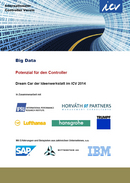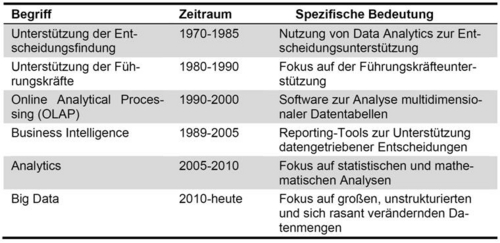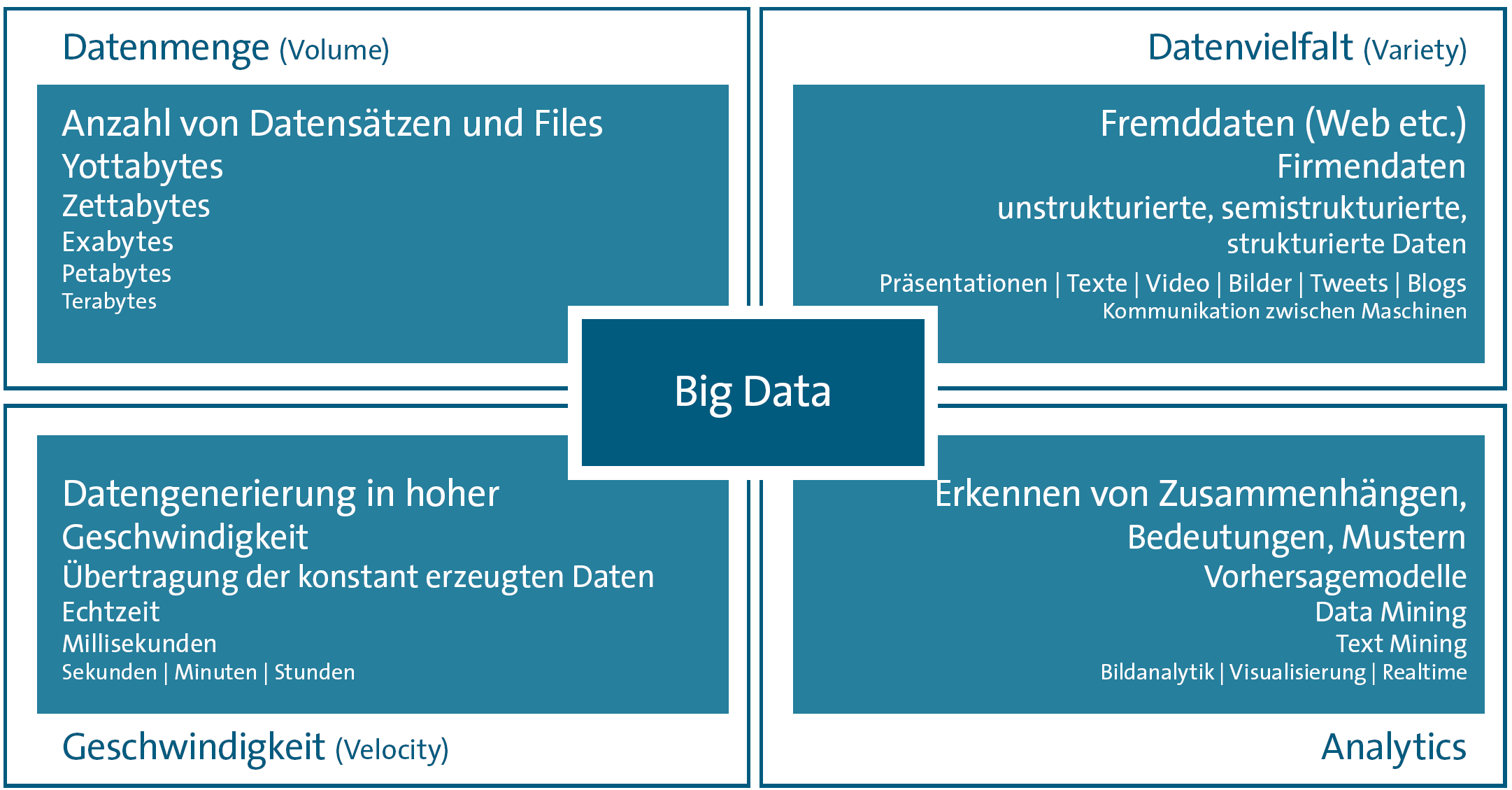Big Data
The focus of the Think Tank in 2013 and 2014:
Big Data | Potential for the controller
The Dream Car report of the Think Tank on the topic "Big Data" is available to you for free download:

What is meant by "Big Data"?
On the one hand, the term "big data" points to the almost unimaginably growing volume of data, the storage of which today is neither a technical nor an economic problem. On the other hand, it is pointed out again and again that only a small percentage of this data volume is specifically analyzed and used. Basically, the term is to be classified into the development of terminologies for the analysis of data to support the company's management. The following table shows this development.

(In accordance with Davenport 2014, p. 10)
The Federal Association for Information Management, Telecommunications and New Media (BITKOM) introduces the conceptualization of four core characteristics of Big Data:
- Volume (= data amounts)
As the term Big Data already implies, this includes both large amounts of data from terrabytes to petabytes, as well as many small amounts of data that must be analyzed together. - Variety (= data diversity)
Not the big amounts of data, but the multiplicity of the data is an opportunity but also a challenge for Big Data. The data comes from internal and external sources and is structured (relational databases etc.), semi-structured (logfiles) and unstructured (texts on the Internet, but also video streams and audio files, etc.). - Velocity (= speed)
The ever-changing and limited data require data generation and processing in real-time or near real-time. - Analytics (= data analysis)
For the management, analysis and interpretation of Big Data, methods for the automated recognition and use of patterns, meanings and interrelations such as statistical procedures, optimization models, data mining, text and image analysis etc. are necessary.

(BITKOM 2012, S. 19)
The intensive examination of the topic of Big Data shows that this definition is not yet sufficient from the point of view of controlling. Companies cannot take advantage of Big Data until they can trust their data and gain measurable value from their analysis. Because when the quality of the underlying information is inadequate, the management loses confidence in the data and relies on intuition rather than on a solid data base. In addition, data specialists are needed who recognize the value of the data and generate a measurable, economic benefit for the company. For this reason, in the Think Tank we would like to extend the basic term by two more Vs.
- Veracity (= credibility)
It must be ensured that there is trust in the credibility of the data. - Value
The use of Big Data Analytics can provide businesses with an economic benefit by gaining a deeper insight into their business. Develop new products and services, and respond to changes that are relevant to the company as they occur.
Big Data questions from the point of view of controlling
Within the scope of the Think Tank, we consider the topic "Big Data" from the controller view. In this context, we will focus on the following key questions:
- What is Big Data? What is the potential of Big Data in companies and organizations? What are the risks? Is this all just music of the future?
- What is the significance of Big Data for the controller?
- Where does Big Data change the work of the controller? Where and how can controller discover potential?
- Where does the controller have to critically question costs and risks as an "economic conscience"?
